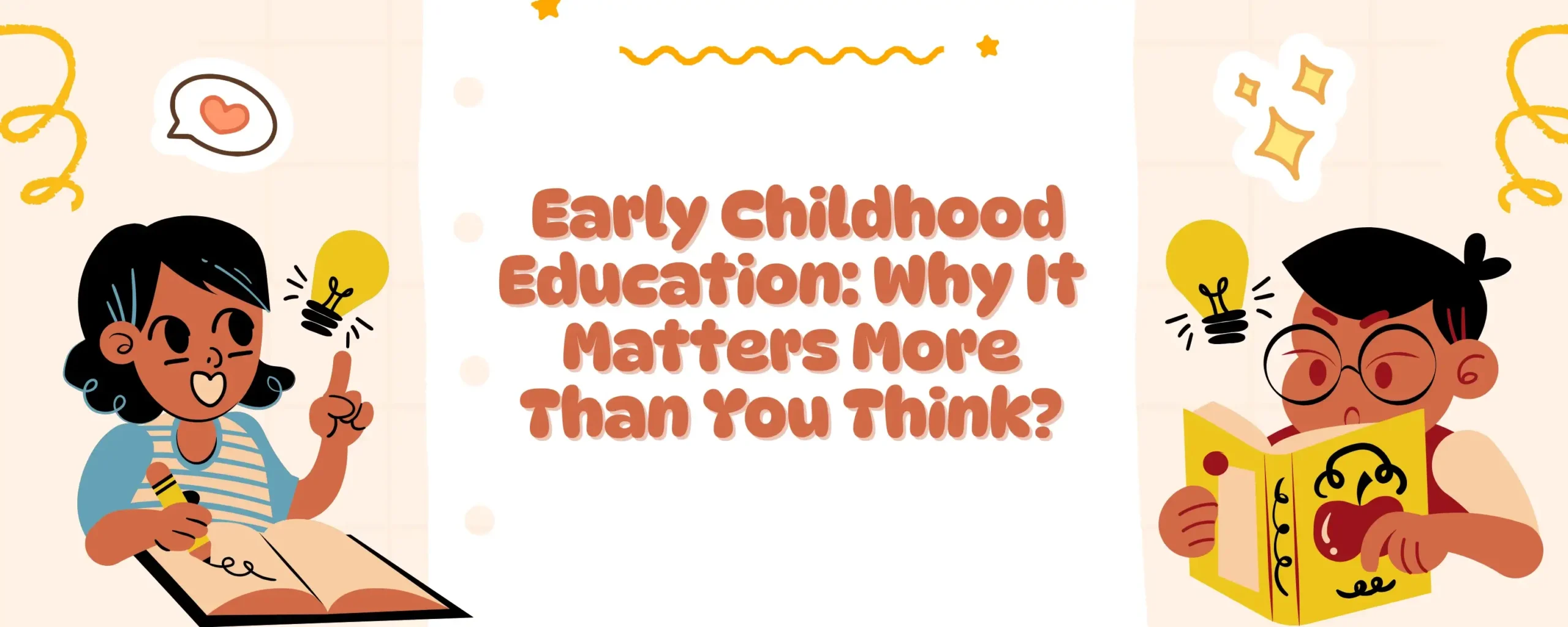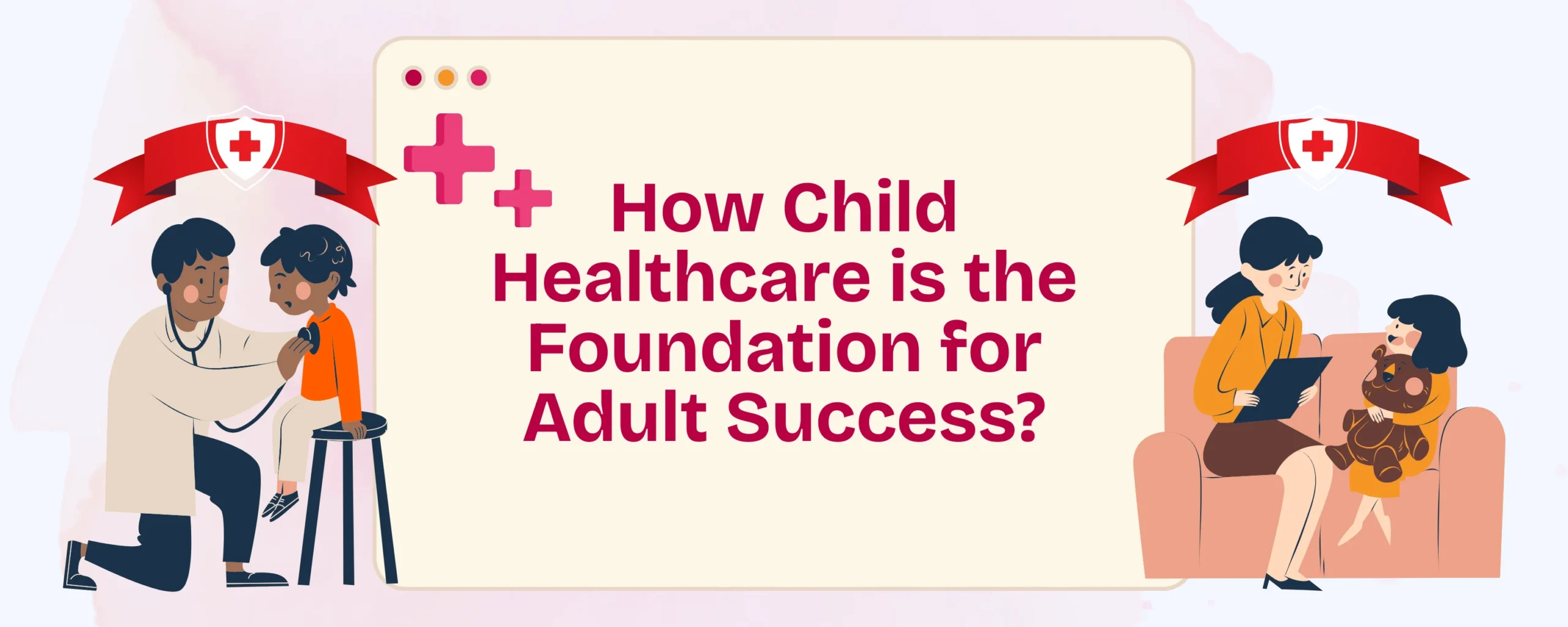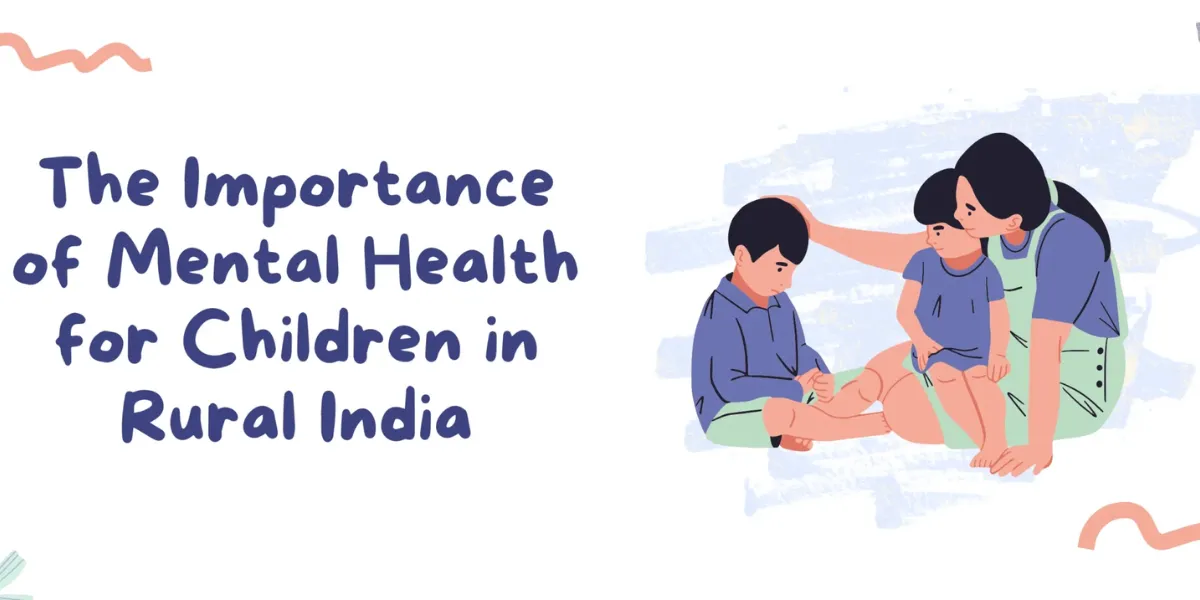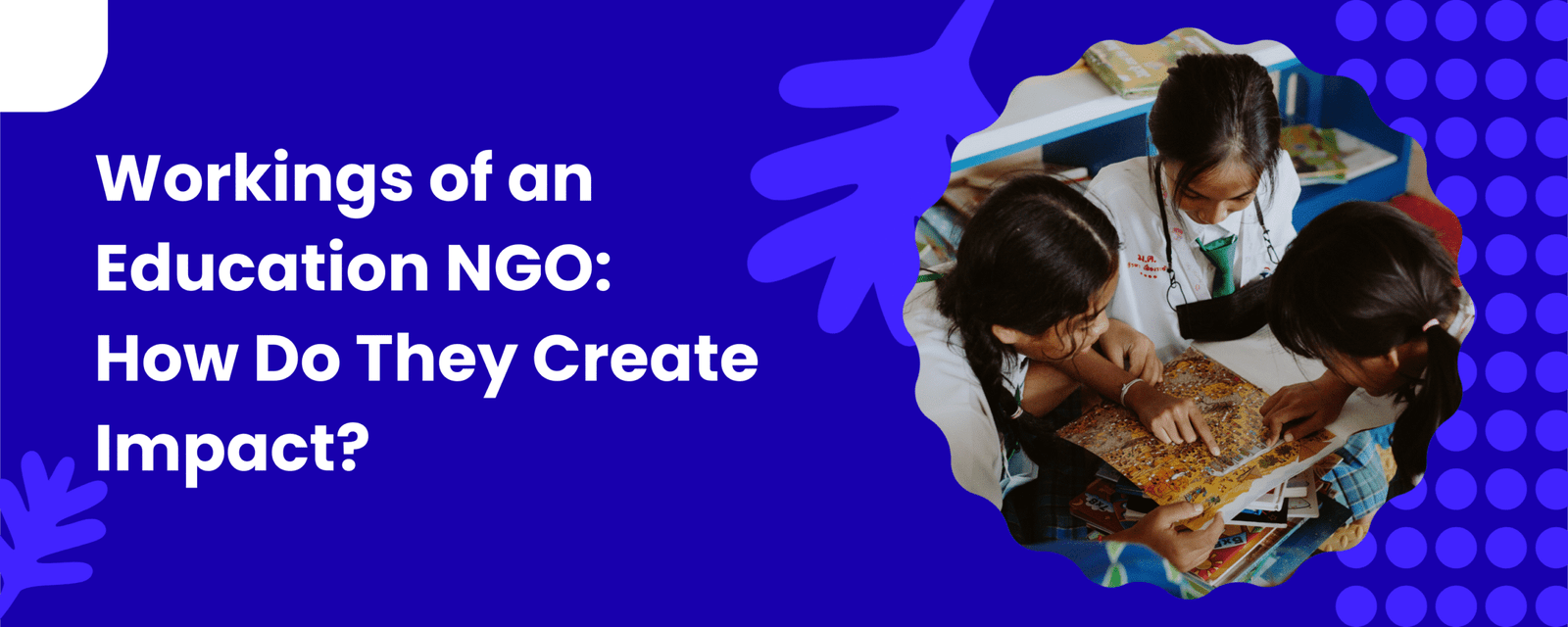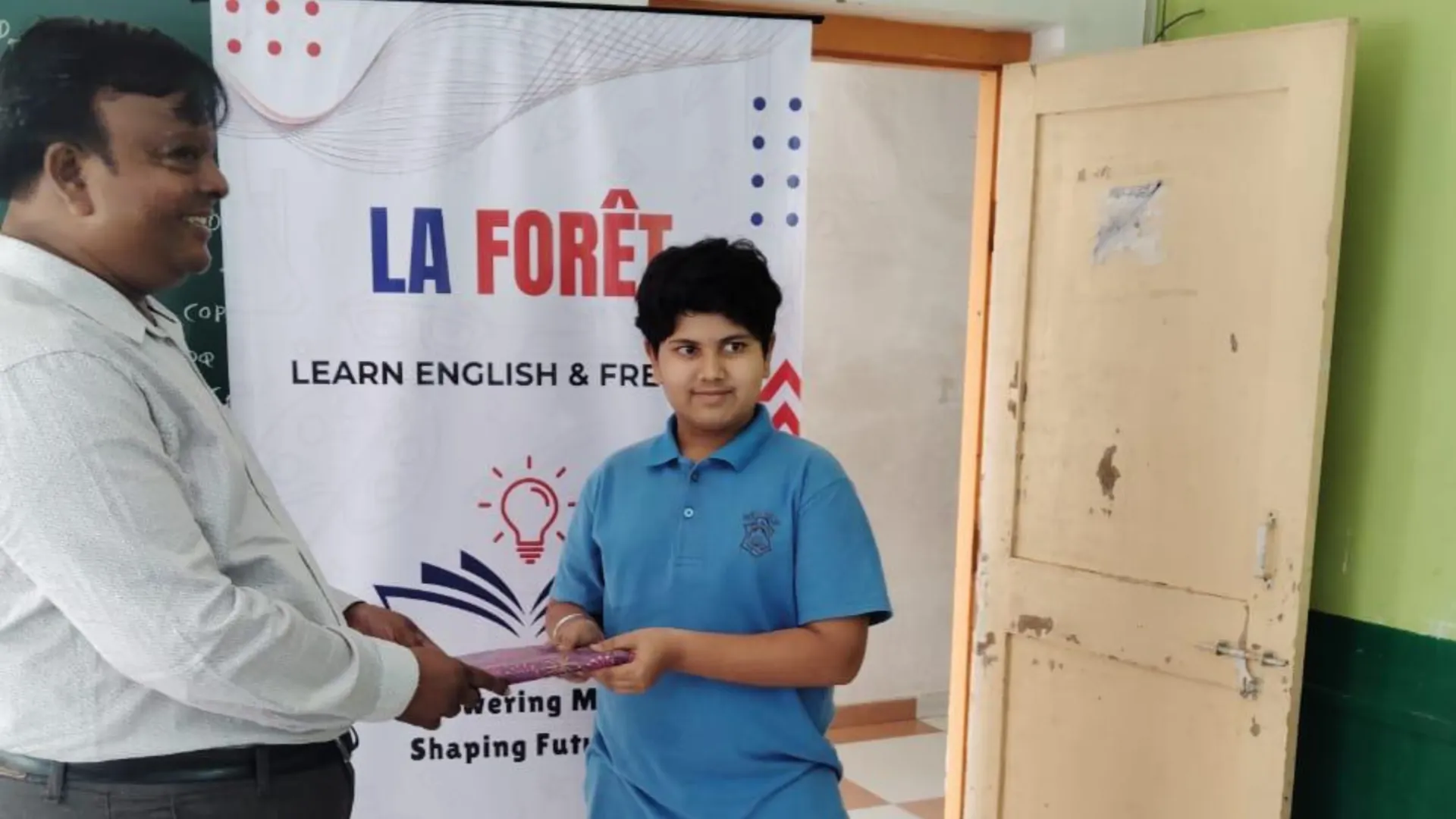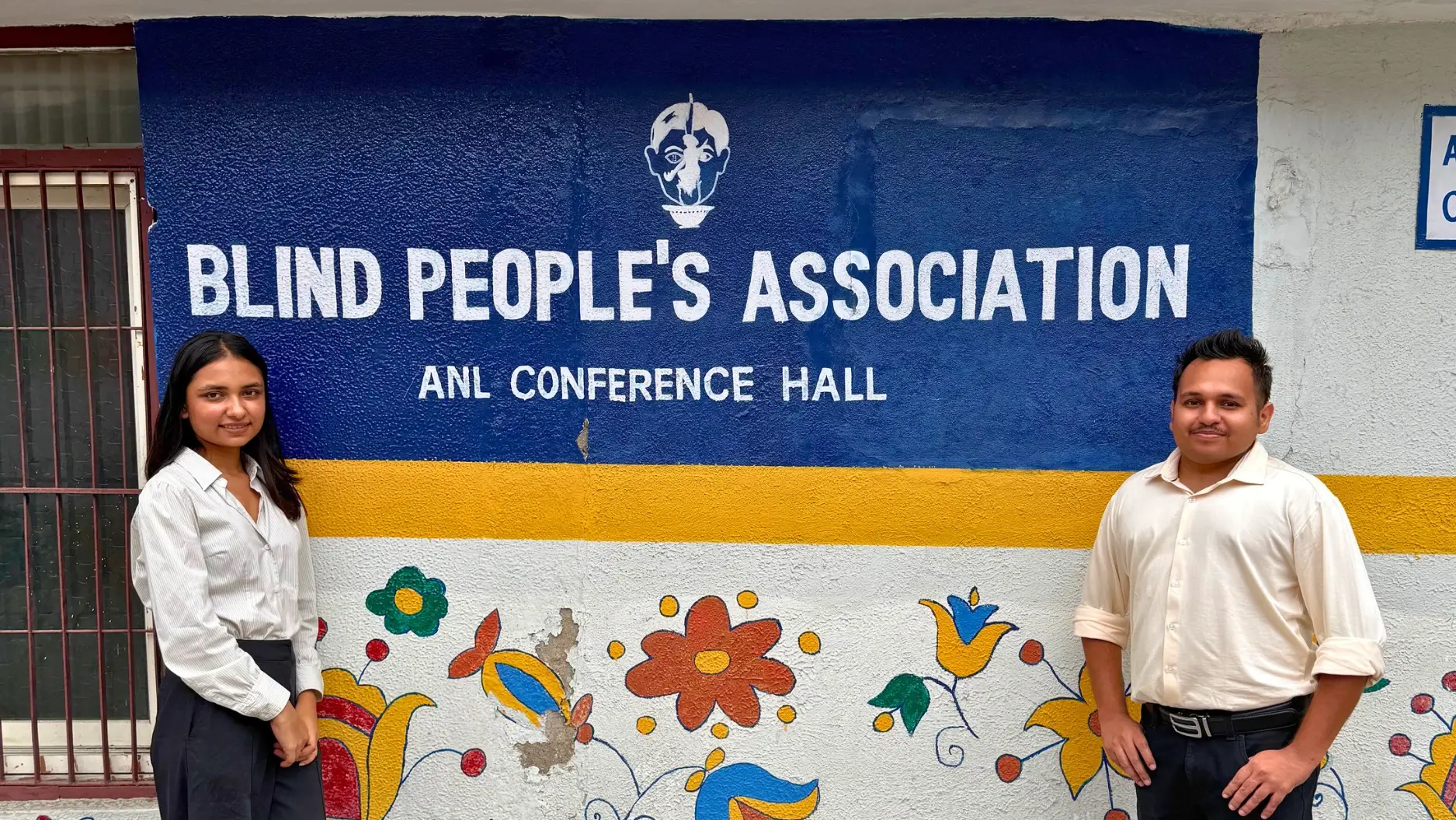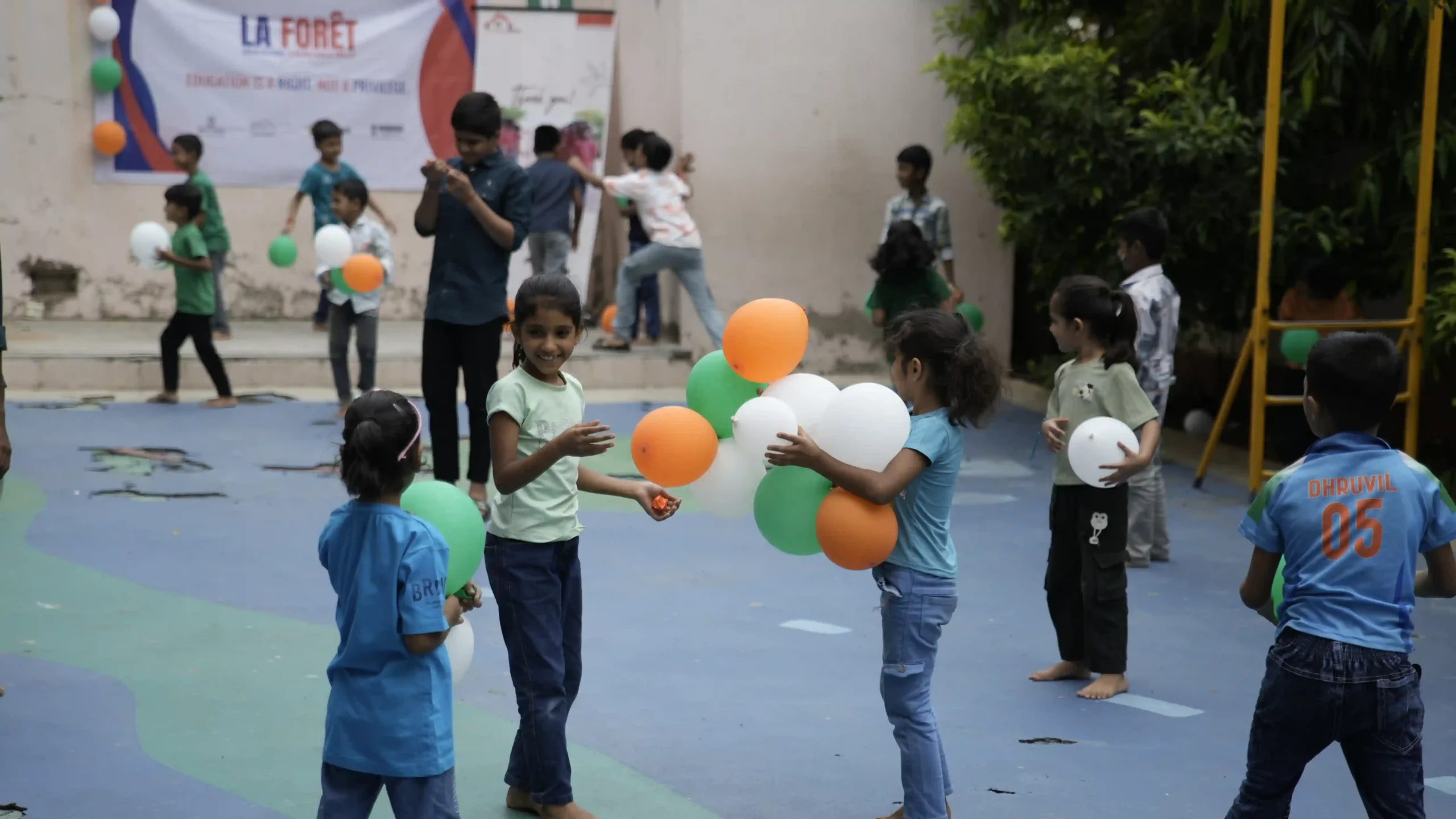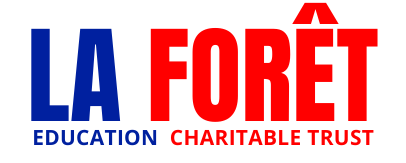Imagine a tiny seed, holding all the potential of turning into a magnificent tree and here the tiny seed refers to a child. Just like a tiny seed needs sunlight and water to grow into a strong tree, children need love, learning, and positive surroundings to grow into confident, happy individuals. The early years, from birth to age eight are a time of amazing brain development and emotional growth. During this stage, a child’s brain grows faster than at any other time in life. Children absorb everything around them: words, feelings, actions and these become the roots of who they’ll become. These early years shapes the way they think, feel, and connect with the world. Early childhood education builds the foundation for a child’s future success, relationships, and lifelong learning. And yet, this crucial phase is often overlooked or not paid enough attention to. It’s truly a time that matters more than you might think.
What Is Early Childhood Education?
Simply put, Early Childhood Education (ECE) is all about nurturing the youngest minds. It covers the crucial period from a child’s birth up to around 8 years of age. It’s a special time when young minds are curious, growing fast, and learning from everything around them. And it’s not just the home environment that they absorb things from. ECE happens in various settings like preschools, nursery schools, daycare centers, home-based programs, and even community setups.
People usually think that these preschool years are usually about learning basic skills, but it’s a common misperception. It is much more than teaching the ABCs or learning shapes and colors. It’s about a child’s overall development, including thinking skills (cognitive), feelings (emotional), interacting with others (social), and body movement (physical). Through fun activities, play, and guided learning, early childhood education helps children build the strong foundation they need for school and life. Now, let’s take a deeper look at the importance of early childhood education.
Brain Development Begins Before Kindergarten
Did you know 90% of a child’s brain development happens before they even turn five! Yes, that fast. Their brains form over a million new neural connections every second. During these early years, a child’s brain is like a sponge soaking in everything around them. Every peek-a-boo game, every “why?” question, every interaction, influences thinking patterns, language skills, and emotional stability. These are the moments when empathy takes root, curiosity blooms, and confidence begins to grow.
The experiences children have early in life play a crucial role in the development of the brain. Positive interactions and playful learning lay the foundation for success. For example, studies have shown that children who are spoken to regularly from infancy have much larger vocabularies by age 3. On the other hand, lack of stimulation or attention during this stage can lead to lasting negative impact. That’s why it’s so important to start early because little brains are building fast.
Emotional and Social Foundations Are Built Early
Beyond brain power, the early years are a time when children start developing emotional intelligence. It’s during these years that children learn to recognize and express their feelings, manage conflicts, deal with frustration, and build friendships. You might have heard from a child that “He/she is my best friend” because it is very easy to form friendships during this age. Through play and interaction with peers, they learn essential soft skills like empathy, patience and sharing. These early social skills can help them form healthy relationships throughout their lives.
This is also the time when they begin to form a sense of identity and independence, as it is the first time a child spends away from home or family in a preschool or daycare. Positive relationships with parents, caregivers, and teachers offer children the safe space they need to bloom, whereas traumatic experiences during those formative years can have long-lasting, detrimental impact. Therefore, it is very crucial to have supportive learning environments, where kindness is celebrated and feelings are acknowledged. These small moments of sharing a toy, or listening to a story aren’t so small, but they help shape a child’s inner world in a big way.
Long-Term Impact of Quality Early Education
Quality early education is a powerful investment with long-term ripple effects. It prepares the children not just for school but for life. How you ask? Well, according to some research by Harvard and UNICEF, children who attend high-quality preschool programs are 25% more likely to graduate from high school, with their future earnings potential boosting by up to 25%. An educated and earning individual is less likely to get involved in criminal activities.
Furthermore, it instils a love for learning that can last a lifetime. Children who have a positive early educational experience are more likely to be motivated, disciplined self-assured learners. This foundation ensures that they are well-prepared for the exciting road of education that lies ahead. Educational sciences have revealed that participation in early childhood education boosts children’s school readiness for school and reduces the gap between socially advantaged and disadvantaged children. Because, there are still many children who can’t access education. But what’s important to remember is that quality truly matters more than mere access alone. Programs with skilled educators, stimulating environments, and nurturing relationships create lasting impacts, while poor-quality settings may offer little benefit. Simply put, investing in high-quality early education is one of the most effective ways to shape brighter futures and stronger societies.
The Inequality in Access to Early Childhood Education
While the benefits of early childhood education are undeniable, a harsh reality exists: not every child gets this head start. In many rural and underprivileged urban areas, early education is still out of reach. Families living in underprivileged communities often face social and economic barriers like lack of affordable and quality preschools nearby, gender biasness, or even the immediate need for older children to help with household chores or income generation. This inequality means that many children are left behind even before they begin school.
Organizations like La Forêt Education Charitable Trust work to bridge the gap that can hinder a child’s educational journey. By creating community-driven learning spaces and nurturing young minds with care and creativity, they are working to close this gap. Because every child—no matter where they’re born—deserves the chance to learn, grow, and dream.
How Parents and Caregivers Can Support Early Learning at Home
Even without formal preschools, parents and caregivers are a child’s first and most important teachers! What you do at home matters more than you know. And no, it’s not about fancy tools. There are so many simple, everyday ways to promote early learning right at home, often with no cost at all.
- Storytelling: Simply reading books aloud or making up tales boosts language skills and imagination.
- Play-based Activities: Stacking blocks, singing nursery rhymes, drawing time, or exploring nature in the garden are low ideas that turn everyday moments into precious learning opportunities.
- Heart-to-heart Talks: Engage in open conversations, asking questions and truly listening to your child’s answers, building their communication and confidence.
What matters most is being present and responsive to your child’s needs. You can build a strong attachment through responsive care: listening to their babbling, offering comfort when they cry, appreciating and celebrating their tiny achievements. What matters most is being present and responsive to your child’s needs.
What to Look For in a Good Early Education Program
Looking at the importance of early childhood education, you might also want to keep your child in the best ECE Program. But how to make this big decision? Here are some points to look for:
- Well-trained and caring teachers who understand child development and treat your kids as their kids.
- Safe, clean, and welcoming spaces that make children feel comfortable exploring.
- Play-based and interactive learning where children learn through hands-on activities.
- Diverse and inclusive environments where no one feels left out.
- Low child-to-teacher ratios for individual attention
- A Thoughtful Curriculum that sparks wonder and nurtures minds and hearts.
It’s also important to observe how children interact with teachers and peers, and how teachers communicate with parents. Don’t hesitate to ask questions, visit multiple times if possible, and listen to your instincts. Your active observation and open communication with teachers are key to evaluating if a preschool or early care center is truly the right fit for your little one’s journey.
Building a Better Future Through Early Education
Investing in early childhood education isn’t just about individual children; it’s about laying the foundation for a stronger society. When we nurture young minds, we’re building a future filled with confident learners who are eager to explore, innovate and lead. These learners grow into engaged citizens who understand their world, participate actively, and contribute positively to their communities. This creates a powerful ripple effect that uplifts entire families, neighborhoods, and entire nations. It’s an investment that yields exponential returns, year after year, generation after generation. It’s a collective good that benefits us all.
Thus, it’s our responsibility to make sure that every child deserves a chance to bloom, learn, grow and become something in life. And supporting education doesn’t always mean big donations. Sometimes even the smallest step can make a huge impact. Discover how education can transform childhood at La Forêt Education Charitable Trust. Because investing in the early years isn’t just wise, it’s transformative. Let’s start where it matters most, at the very beginning.
